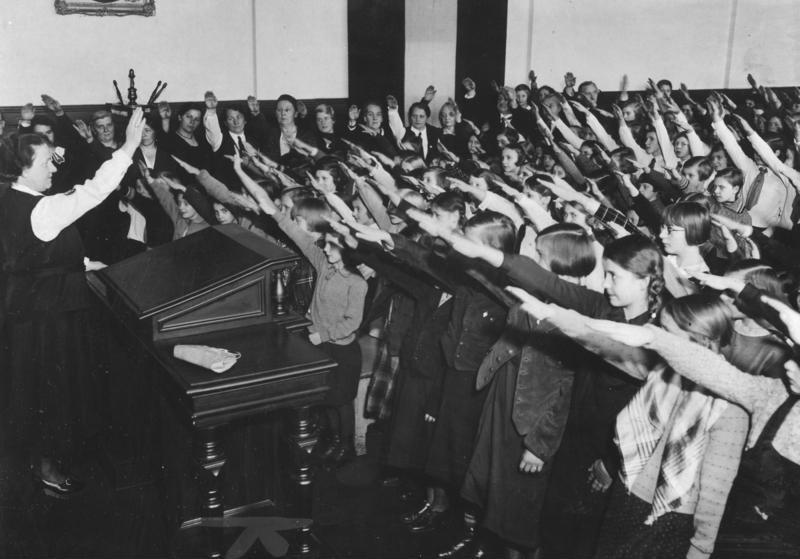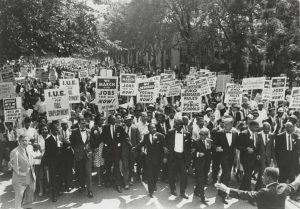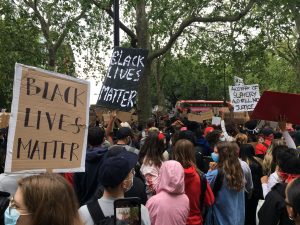There is no denying the importance of education, especially in our formative school years. We learn how and why things happen and use that information to form opinions about the current state of affairs and, of course, about the history of how we got there.
The government this week announced a change to the English curriculum which can surely only be seen as a political decision. They declared that schools in England were forbidden from using materials sourced from “anti-capitalist” organisations. This means that any teaching regarding, for example, Communism or Socialism will be taught from the perspective of capitalists – you know, the people who hate Communism and Socialism.
The big question to ask ourselves is: what precedent does this set? History makes it clear that the answer is a dangerous one.
For a nation so indoctrinated with the idea that Brits single-handedly defeated fascism after World War II, we seem to be hurtling towards an education system eerily similar to that of Nazi Germany.

Image from Wikimedia Commons
Almost immediately after his election, Hitler took to editing the curriculum of German schools as to promote, in the words of Louis L. Snyder, “the glory of country and filled [students] with fanatical devotion to the national cause.” If we are to remove anti-capitalist sentiment from education, we are mere steps away from having anti-capitalist sentiment removed from life completely; the media onslaught against Jeremy Corbyn between 2016 and 2020 indicate that our society has already shifted to the right even without these new education laws. We edge closer and closer to authoritarianism and totalitarianism, and if we really care about freedom of expression and freedom of opinion, we must maintain equality in the education with which we provide our children.
People have opposed capitalism since feudalism was overthrown in the 15th Century, so are we really supposed to just ignore vast swathes of history? Anti-capitalist have throughout history not had purely economic aims; without them we would not have universal suffrage, the NHS, or the welfare state. History is notoriously written by the winners, but that still does not justify the erasure of years of radicalism.
A further problem with these new rules regards the ambiguity that has plagued governmental decisions throughout Boris Johnson’s tenure, which has yet again reared its ugly head. The Suffragettes were anti-capitalist,

Dr. Martin Luther King Jr. on a peaceful protest march. Image from Wikimedia Commons
Dr. Martin Luther King Jr. was anti-capitalist, Karl Marx was (obviously) anti-capitalist. Not only this, but they all partook in illegal activity of some sort, whether it be letter-bombs, peaceful marches to Selma, or simply opposing those at the top of the social ladder. Are we to simply stop teaching pupils about the groups and events that have shaped the world in which we reside today?
To me, this seems like a shameless attempt by the government to end any and all criticism of a political party in disarray yet out of control. One of the founding pillars of dictatorships is controlling what can be said about the government in both schools and wider society, and ensuring it is all positive. We can already see history repeating itself in Belarus with the fallout from the recent presidential election, and if we are not careful we will fall in line behind neo-fascist governments across the globe.
If these new guidelines are allowed to stay in place, what will there be left to teach?
Personally, my A-Level history course was littered with anti-capitalist references, from anti-slavery groups in 19th-Century America, trade unionism in Britain, and radical feminism of the 1970s/80s. If we hark back to the days of GCSE, students across the country were taught about the use of illegal chemical weapons by the USA in Vietnam and the anti-capitalist movement of the Bolsheviks in Tsarist Russia. Under these new guidelines, we would surely have to eradicate any mention of wrongdoing by the global community; although maybe an insular history is the perfect accompaniment to a Brexit so hard that it may see us gain blue passports but lose Kent.
We stand at a time when education is vitally important, especially regarding the systemic racism prevalent in the global community. So let’s briefly look 30 years into the future.

Image from Wikimedia Commons
Students will learn about the 2020 Black Lives Matter Protests. They will study the deaths of George Floyd, Breonna Taylor, Elijah McClain, and countless other black people at the hands of the authorities. However, if current guidelines remain in place, they will not be allowed to use official Black Lives Matter UK resources, as the very point of the organisation is to promote equality of all races, including economically. So to whom will schools be forced to turn? The Daily Mail? The Sun? The vitriol found in these tabloids is far more damaging than the message of anti-capitalist organisations.
At the height of the BLM protests in the UK, Boris Johnson said that we “cannot edit our past”. The unbelievable hypocrisy of such a comment when placed next to this new set of guidelines is laughable, but the consequences of such action are certainly not.
History is a debate. It requires multiple opinions. Boris is wrong, we can edit our past, but that does not mean we should.
